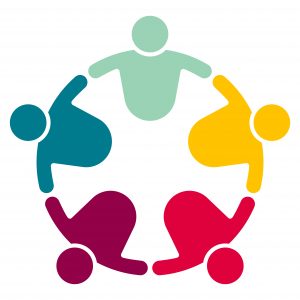 “There are only four kinds of people in the world. Those who have been caregivers. Those who are currently caregivers. Those who will be caregivers, and those who will need a caregiver.” –Rosalyn Carter
“There are only four kinds of people in the world. Those who have been caregivers. Those who are currently caregivers. Those who will be caregivers, and those who will need a caregiver.” –Rosalyn Carter
These prescient words by the former first lady remain as relevant and true as ever.
According to a 2020 report from the AARP:
- More than 40 million Americans are caregivers to a friend or family member over 50, and many them are adult children caring for aging parents.
- The number of people providing care to an elderly friend or relative has increased by more than 7 million just since the last report in 2015.
- The factors that have converged to drive this trend include:
- the aging of the Baby Boomer generation;
- limitations or workforce shortages in the health care or long-term service care systems; and
- an increase in state’s efforts to better facilitate home care.
The real-life outcome for caregivers can be overwhelming as they struggle to find balance between providing the care they want for their loved ones and maintaining some level of independence in their own lives.
While there is no silver bullet that will make caregiving easy, there are a lot of resources that caregivers can tap into for information and support.
 To help you get started, we’ve compiled a list of some of our favorite sites, apps, and organizations. Scroll down to find resources in these 6 categories:
To help you get started, we’ve compiled a list of some of our favorite sites, apps, and organizations. Scroll down to find resources in these 6 categories:
- Getting general information and support
- Finding professional help
- Navigating specific challenges
- Transportation, food, housing and other sources and benefits
- Connecting for stories, support and tips
- Using technology to help you store, track and manage information
Getting General Information and Support
- AARP: Best known as an information and advocacy resource serving seniors directly, AARP (American Association of Retired Persons) also provides a wide range of articles for family caregivers.
- Adult Children of Aging Parents: Founded in 2012, this non-profit provides a variety of educational programs that offer information, resources, support, and community for adult-children as they care for their aging parents and for themselves.
- National Council on Aging: Founded in 1950, this organization was the first national voice for older adults. Their site houses many caregiver resources, including their BenefitsCheckUp, which helps caregivers determine eligibility for various programs and services.
- Next Step in Care: This organization provides guides to help family caregivers and health care providers work closely together to plan and implement safe and smooth transitions for chronically or seriously ill patients.
- The National Alliance for Caregiving: The NAC conducts research, does policy analysis, develops national best-practice programs, and works to increase public awareness of family caregiving issues. In addition, this advocacy group connects caregivers to a wide variety of related resources, published guidebooks on various topics, and more.
Finding Professional Help
- Aging Life Care Association: (ALCA) This Tucson-based nonprofit is on a mission to promote and lead the community of Aging Life Care Professionals(R) by providing an extensive knowledge base, continuing education, and professional development. Family caregivers can visit the directory to search for an Aging Life Care Professional.
- Eldercare Locator: Run in partnership with multiple government agencies, this site provides access to a database of various services including transportation, housing, insurance, and more.
Navigating Specific Challenges
- Alzheimer’s Association: In addition to working to accelerate global research, drive risk reduction and early detection, and maximize quality care and support, the Alzheimer’s Association also provides many resources for caregivers.
- Americans with Disabilities Act National Network: This site offers detailed information, updates, and helpful publications related to the regulations that protect people with disabilities and their caregivers.
- CaringInfo: This program of the National Hospice and Palliative Care Organization provides free resources to educate and empower patients and caregivers to make decisions about serious illness and end-of-life care and services.
- Family Caregivers Alliance: For more than 40 years, FCA has provided services to family caregivers of adults with physical and cognitive impairments, such as Parkinson’s, stroke, Alzheimer’s and other types of dementia. Their services include assessment, care planning, direct care skills, wellness programs, respite services, and legal/financial consultation vouchers.
- FCA CareNav: This organization is a secure online service for quality information, support, and resources for family caregivers of adults with chronic physical or cognitive conditions such as Alzheimer’s, stroke, Parkinson’s, and other illnesses.
- Supplemental Security Income: This government program provides monthly payments to adults and children with a disability or blindness who have income and resources below specific financial limits. SSI payments are also made to people age 65 and older without disabilities who meet the financial qualifications.
Accessing and Assessing Transportation, Food, Housing, and Other Services and Benefits
- Administration on Aging: The AOA is the principal agency of the U.S Department of Health and Human Services designated to carry out the provisions of the Older Americans Act of 1965 (OAA). They administer many national programs and services for seniors from elder abuse prevention to help with long-term care planning, and many other issues.
- Benefits.gov: This site offers a centralized way to ensure the person you’re caring for is taking advantage of all the available federal, state, and local benefits.
- Department of Veterans Affairs: This site provides information about and access to a wide range of benefits including healthcare, disability, education, records, and more. The site also has a section specifically for caregivers.
- ITNAmerica: The Independent Transportation Network of America has the largest listing of senior transportation service providers anywhere. Their mission is to promote lifelong mobility for seniors with sustainable, community-based transportation solutions.
- Meals on Wheels Association of America: Supporting more than 5,000 community-based programs across the country, Meals on Wheels is dedicated to addressing senior isolation and hunger. In addition to delivering nutritious meals, they offer friendly visits and safety checks that support seniors’ independence and dignity.
- Medicaid: This site provides information about Medicaid benefits, qualification criteria, and more.
- Medicare: This site houses information about the federal health insurance system. They also have some specific information for caregivers.
- Senior Lifestyle: This site offers information about a wide range of housing and care options: independent living, assisted living, memory care, skilled nursing, short-term care, and affordable housing.
Connecting for Stories, Support, and Tips
- AgingCare Caregiver Forum: This online forum where caregivers can share their experience and learn from others by asking questions, giving answers, or participating in a group discussion. The main site also includes ebooks, checklists, and resources to help caregivers find professional providers.
- As Our Parents Age: Educator Marti Weston shares her experiences supporting her aging parents, both the emotional side and the tactical side of caregiving and medical care.
- Caregiver Warrior: Susanne White says up front that caregiving is not for the faint of heart. Her blog chronicles her journey with her late parents, and continues the conversation beyond their passing to continue providing support and wisdom.
- Daughterhood.org: This site offers a range of content, including webinars, podcasts, blogs, and a resource for finding or starting a local “daughterhood circle.”
- People with Parents Podcast: In this personal storytelling podcast, stand-up comedian Leighann Lord shares uber short micro-episodes, in which she talks about and tries to figure out the role reversal that happens between adult children and their aging parents.
- The Caregiver Space: This nonprofit provides a safe and open space—at no cost—where you can be real about what it’s like to care for someone dealing with a serious disability or illness. The community of caregivers provides a place to ask questions, share experiences, get real answers, or just get things off your chest.
Using Technology to Help You Store, Track, and Manage Information
- CaringBridge: This popular site is a free online tool for sharing health updates. It is an easy and ad-free way to communicate health news to family and friends—all in one place. They also have an app.
- Caring Village: This coordination site offers a variety of private and shareable tools to keep track of medications, paperwork, schedules, and more. The site also has a collection of articles on different kinds of products. There is an app available.
- Lotsa Helping Hands: Available as both a browser-based tool and an app, this site provides free tools to help privately coordinate services amongst friends and family.
- Medisafe App: This app helps a person manage all their medications including prescription reminders, drug interaction warnings, caregiver alerts, coupons, and physician communication.
- PainScale: This website and mobile application platform designed to help patients better manage their chronic pain journey. PainScale’s digital platform increases the quality of information sharing between doctors and patients and provides valuable insights into the patient’s well-being.
- Symple: This award-winning and doctor-recommended app provides a suite of tools to help track important data on physical activity, meals, medications, sleep, symptoms, and general well being.
Related Posts:
3 Key Steps to Take Before Hiring an In-Home Caregiver
Pay Caregivers What They are Worth: It’s Long Overdue
Are You Ready to Become Your Parent’s Primary Caregiver?
8 Signs of Caregiver Burnout and What You Can Do About It
 Connecticut Estate Planning Attorneys Blog
Connecticut Estate Planning Attorneys Blog


